Keywords: Michael Mullins
-
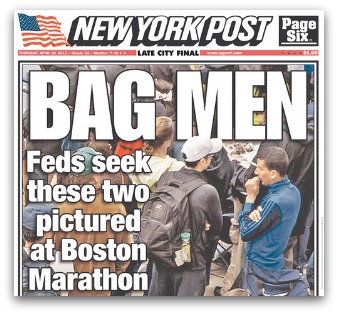
AUSTRALIA
- Michael Mullins
- 22 April 2013
16 Comments
In a week of racist and xenophobic reaction to the Boston Marathon bombing, one US observer commented separately on Australia's racism, describing our country as one of the 'most comfortably racist places' he'd ever been in. Racism is a source of shame in the US, but part of the culture in Australia.
READ MORE 
-

AUSTRALIA
- Michael Mullins
- 15 April 2013
15 Comments
Under the Coalition's version of the National Broadband Network, super-fast access is not lost for those who can afford the internet connectivity equivalent to a business class flight. Those who cannot however will make up the large new underclass of the digitally disadvantaged.
READ MORE 
-
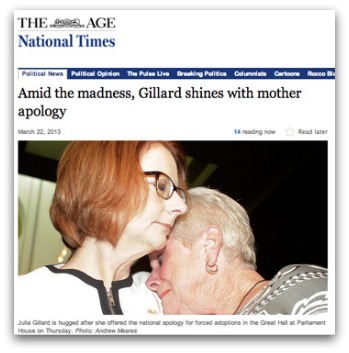
AUSTRALIA
- Michael Mullins
- 25 March 2013
23 Comments
Most of our attention on Thursday focused on the disintegration of the ALP, reflecting politicians at their worst. But one of Friday's minor headlines described the overshadowed Forced Adoptions Apology as Julia Gillard 'at her finest'. The emerging pattern of official recognition of the hurt caused to disadvantaged Australians by past public policy deserves more exposure.
READ MORE 
-
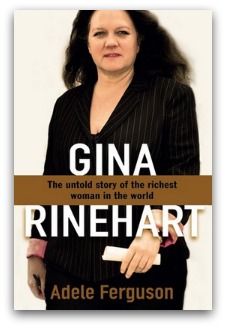
AUSTRALIA
- Michael Mullins
- 18 March 2013
11 Comments
During the week, media power brokers portrayed Communications Minister Stephen Conroy as a Stalinist enemy of press freedom. This coincided with an assault on one of its core principles — the protection of journalists' sources — by Gina Rinehart, one of Australia's up and coming media barons. It appears politicians are scared to speak out.
READ MORE 
-

AUSTRALIA
- Michael Mullins
- 14 March 2013
21 Comments
The new pope is a conservative, but as Archbishop of Buenos Aires he chose to live in a small apartment rather than the palatial bishop's residence. He failed to openly challenge Argentina's dictatorship of the late 1970s, but he regarded clericalism as a scourge that 'separates the people of God from salvation'.
READ MORE 
-

AUSTRALIA
- Michael Mullins
- 11 March 2013
4 Comments
Channel 7's Weekend Sunrise mocked the Catholic Church during its papal conclave preview. The Vatican's culture of secrecy encourages journalists to act like children. Last week the US cardinals took a more open approach and got positive media. But they were slapped down and the coverage became trivial once again.
READ MORE 
-

AUSTRALIA
- Michael Mullins
- 04 March 2013
22 Comments
Opposition Immigration spokesperson Scott Morrison called for a suspension of asylum seekers being released into the community, on the basis of a single violent incident. Fairfax Media showed these people are about 45 times less likely to be charged with a crime than members of the public. A fear mongering politician appears to have more credibility than the facts.
READ MORE 
-
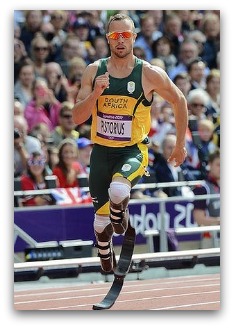
AUSTRALIA
- Michael Mullins
- 25 February 2013
16 Comments
The success of elite athletes is often accompanied by narcissistic behaviours that exploit and damage other people. This appears to be the case with Oscar Pistorius and Lance Armstrong. In seeking to curb such behaviour, we can call for greater regulation and surveillance. But we can also examine our own behaviour.
READ MORE 
-

AUSTRALIA
- Michael Mullins
- 18 February 2013
34 Comments
Benedict's resignation makes him look like a radical in the tradition of Christian radicalism. He wrote that after examining his conscience, he concluded that he should resign because he was no longer adequate to exercise the Petrine ministry. This logic has implications for other conventions and rules such as priestly celibacy.
READ MORE 
-

AUSTRALIA
- Michael Mullins
- 11 February 2013
6 Comments
Business Council of Australia president Tony Shepherd justifies superannuation tax concessions for the wealthy: 'We go to work, we get paid. The money is ours.' In the USA, philanthropy is common among self-made men. There is no such tradition here, where taxes are needed to fund welfare and other projects for the common good.
READ MORE 
-

AUSTRALIA
- Michael Mullins
- 04 February 2013
8 Comments
Last week the political leaders were brawling over assistance payments for middle-class Australians, with Tony Abbott claiming to be promoting 'tax justice for families'. A new Human Rights Commission report has shown how our super and tax systems fail unpaid carers, who are needed to sustain many families. But not the ones whose votes matter most.
READ MORE 
-
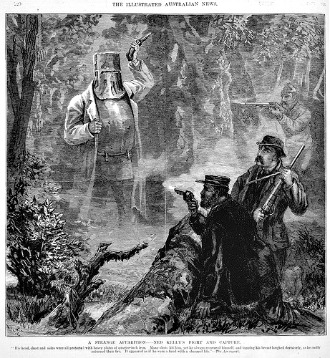
AUSTRALIA
- Michael Mullins
- 21 January 2013
16 Comments
Discussion of whether Ned Kelly and Lance Armstrong are heroes or villains is a distraction from the more important big picture reality such as crime and justice in 19th century Victoria, and performance enhancing drugs in sport today. If we are preoccupied with judging behaviour, we will miss the opportunity to promote better laws that will make our society fairer for all.
READ MORE 